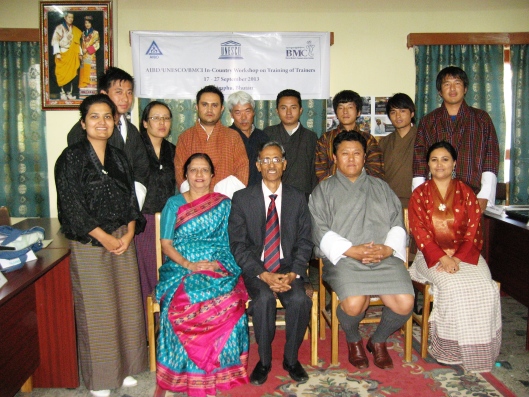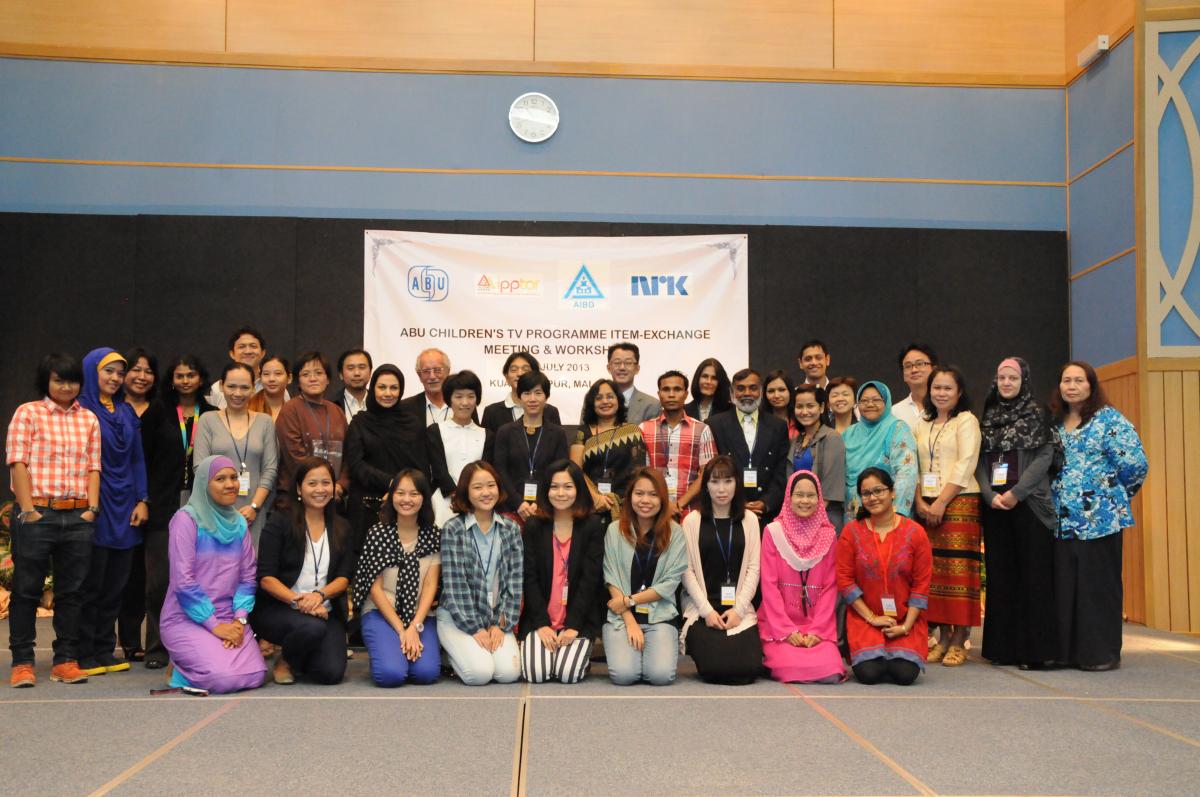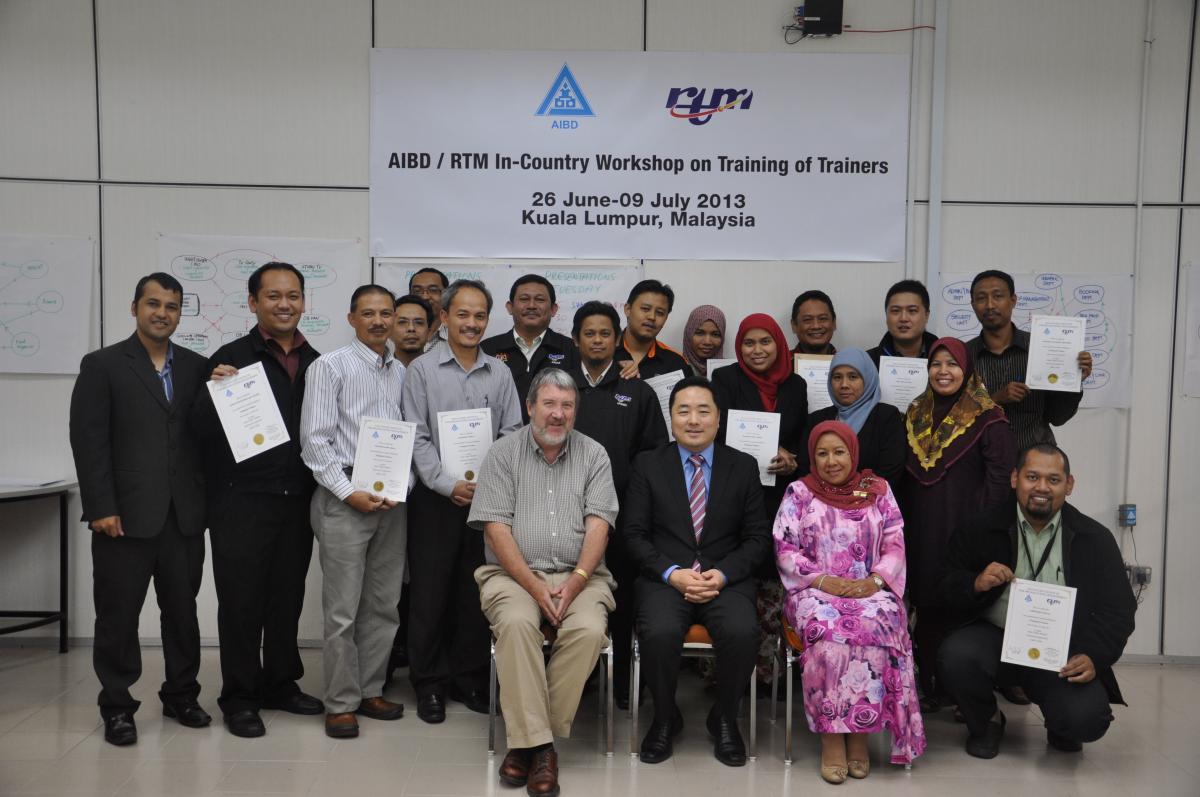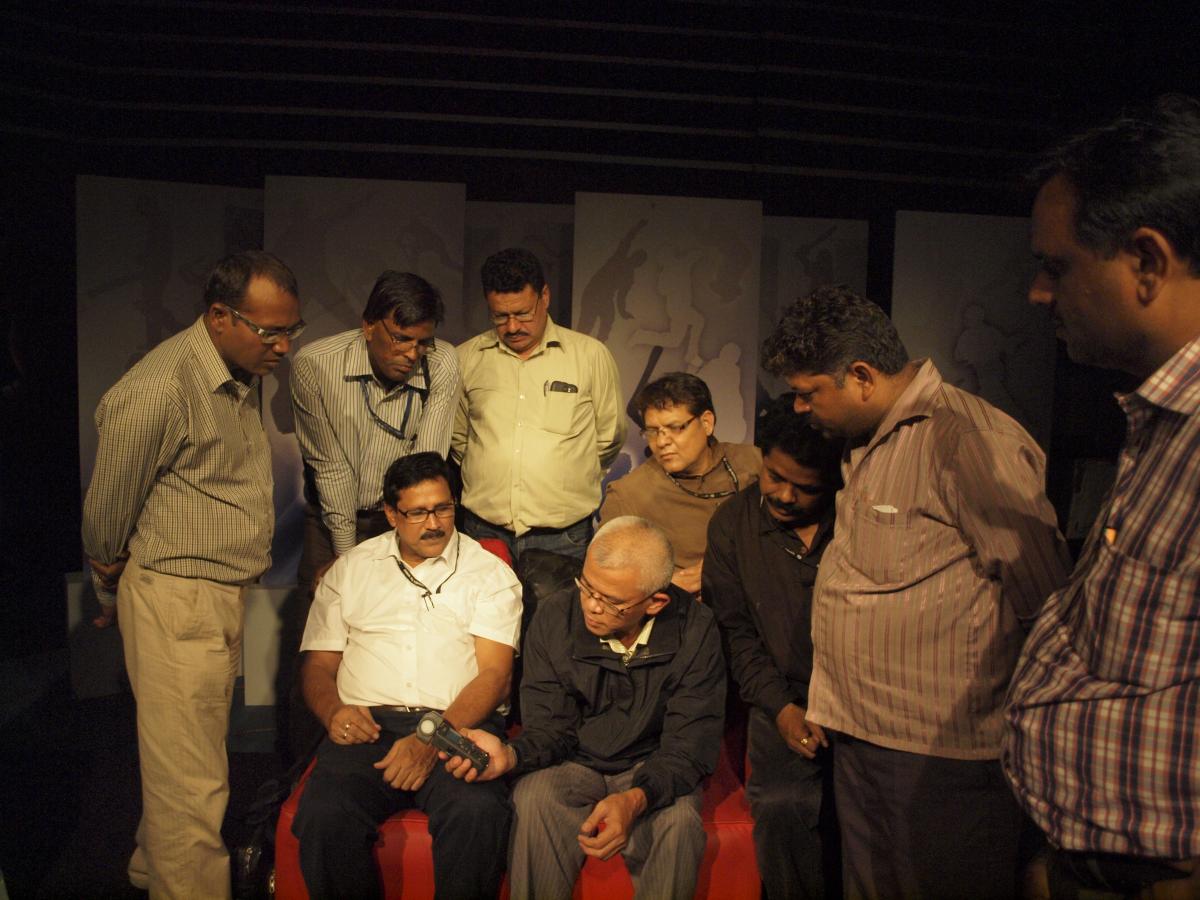In response to a request by Bhutan Media and Communications Institute (BMCI) who joined as one of AIBD’s affiliate members in 2013, AIBD organised and collaborated with BMCI to implement the two week Training of Trainers workshop in Thimpu, Bhutan from 17-27 September 2013.
In response to a request by Bhutan Media and Communications Institute (BMCI) who joined as one of AIBD’s affiliate members in 2013, AIBD organised and collaborated with BMCI to implement the two week Training of Trainers workshop in Thimpu, Bhutan from 17-27 September 2013.

Bhutan Media and Communications Institute (BMCI) was registered as a training institute in Bhutan in 2011. Though BMCI had the expertise in media but they did not have in-house expertise in managing the training institute they had to carry out the training with their network of professional and experienced trainers and institutions who were willing to support BMCI’s initiatives. Also since there was an acute shortage of trained trainers in Bhutan the Institute was literally dependent on foreign trainers to carry out in-country training.
The two week training on Training of Trainers workshop organised by AIBD and hosted by BMCI was attended by those who were already working as trainers, reporters and also by content specialists who had sufficient experience in their respective fields desiring to become trainers.
The consultant was Mr Y K Sharma, Advisor (Trg. & HRD) at Broadcast Engineering Consultants (BECIL) in India who is an experienced trainer on training methodology and is familiar with AIBD’s standardized curriculum for Training of Trainers.
The focus of the training was ‘learning by doing’. One of the highlights of the workshop was the individual micro teaching presentations applying the methodologies and the techniques learnt during the training to impart knowledge and skills to others on either formal or on-the-job training. According to Ms Pushpa Chettri Director of BMCI “Micro teaching towards the end captured the whole essence of the program and was a huge success. It was the most challenging and interesting experience.”

After the conclusion of the workshop BMCI management is confident that they will be able to plan, organize, conduct, monitor and evaluate structured training programmes, using practical projects to transfer knowledge and skills and also apply the principles of adult learning in core competency development programmes using a variety of training methodologies.
In-country workshop on Training of Trainers in Bhutan
In response to a request by Bhutan Media and Communications Institute (BMCI) who joined as one of AIBD’s affiliate members in 2013, AIBD organised and collaborated with BMCI to implement the two week Training of Trainers workshop in Thimpu, Bhutan from 17-27 September 2013.
Kids and Web – New Challenges for Broadcasters
28 participants from different ABU organizations attended the ABU/AIBD/IPPTAR/NRK Regional Workshop on “Kids and Web – New Challenges for Broadcasters” dealing with online content, which took place from 4 to 6 July 2013 in Kuala Lumpur, Malaysia within the ABU Children’s TV Programme Item-exchange.
AIBD/ RTM In-Country Workshop on Training of Trainers
AIBD/ RTM in-country workshop on Training of Trainers was held from 26 June to 9 July 2013 in Kuala Lumpur. It was organized by AIBD and supported by Radio Television Malaysia (RTM). The training was facilitated by Dr. David Mould, Professor Emeritus of Media Arts and Studies at Ohio University (U.S.A.)
AIBD/Prasar Bharati/STI (T) In-country Workshop on HDTV Lighting
The AIBD/Prasar Bharati/STI (T) in-country workshop on HDTV lighting was held from 17-21 June 2013 in New Delhi, India. It was organized by AIBD for Doordarshan TV station focusing on lighting techniques for HD production in particular for news and outdoor program production.
Covering Elections in Indonesia
AIBD and Televisi Republik Indonesia (TVRI) jointly organised a workshop on election coverage in the week leading up to the 10th Asia Media Summit. The AIBD/TVRI In-country Workshop on Election Coverage was held in Manado, Indonesia, from 25–27 May 2013. It was particularly helpful because, as Indonesia’s public service broadcaster, TVRI has to cover national, regional or city elections somewhere in the country several times every year.
A Better Media in Times of Pandemic
Ms. Moneeza Hashmi, President of the Commonwealth Broadcasting Association, calls for a better media in times of global pandemic. She said media must enhance its information function to generate awareness in alerting and preparing citizens before disasters strike that can prevent death, injury and destruction.
Pluralism in Media
Dr. Venkat Iyer, a Barrister and Law Commissioner, United Kingdom, calls for pluralism or a marketplace of ideas in media that accommodates both mainstream and alternative views. He said belief in a free press is a requisite to allow a flourishing of ideas that can enhance media practice.
3D Technology Benefits
Delegates from ten Asia-Pacific and African broadcasters are participating in the 3D Master Class, one of five pre-summit sessions preparatory to the Asia Media Summit 2013 in Manado, Indonesia. Ms. Sarah Rotter, a stereographer of Stereotec in Germany and the workshop trainer, said using 3D technology would reap benefits for broadcasters as well as consumers.
Transmedia Programming
Understanding the behaviors and trends of audience media consumption and expanding core story over timelines, territories and platforms are two important components of a successful transmedia programming that can attract and excite audiences.
Workshop on Election Coverage
The AIBD/TVRI In-country Workshop on Election Coverage is held in Manado, Indonesia from 25 - 27 May 2013, prior to the Asia Media Summit. The workshop focuses on how to have smart election programming based on media's role in democracy with high quality coverage – reflecting accuracy, fairness and balance.





